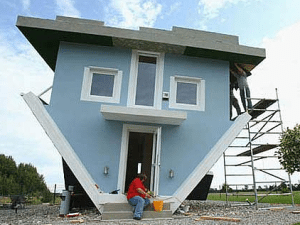
There are many books that can help you start, whether you're a newbie to real estate investment or an experienced investor who wants to learn more. These books will help you learn everything from the basics to more advanced topics, such as tax strategies and property management.
The right book is essential. It should also be easy to follow and provide practical advice to help you decide on the best investment. It's also possible to find different niches when it comes to real estate investing. So, you need to pick a book which addresses your specific requirements.
How to Invest: The Ultimate Guide for Beginners
Brandon Turner’s book provides a comprehensive, all-encompassing guide to investing in large-scale properties. It is ideal for both newbies and experienced investors. Its advice can help you generate more income and achieve financial freedom through real estate investments.

Multifamily millionaire: Financial freedom through small multifamily properties
Brandon Turner covers in this book the strategies involved with buying and renting multifamily small properties. It also explains real estate evaluation and negotiation techniques.
Brandon Turner also wrote The Real Estate Investing Book, That Made a Millionaires. It provides valuable information about becoming a millionaire with real estate. It discusses the ways to avoid some of the most common mistakes in real estate investment and how to build your portfolio by focusing only on high-yielding assets.
BRRRR (Buy, Rehab Rent, Repeat): Secrets of Successful Real Estate Investors BRRRR is a popular real estate strategy where you buy a home for less than its worth, rehab it, and then rent it to tenants. This strategy can be extremely profitable, but it requires that you know how to implement it correctly and successfully.
How to Invest in real estate: The Basic Guide to Buying, Financing, and Selling Your Home is one the best books on real estate investing for beginners. It explains how to leverage loans to buy property at low rates. The book also teaches the importance of choosing the right market and the location.

Shift, 12 proven strategies to succeed in any real estate market
This book should be read by all real estate investment professionals because it stresses the importance to stay on top of changes in the marketplace and to know how to react. This is an invaluable resource that will assist you in developing strategies to increase investment income and lower your risk.
If you have the proper mindset and the skills to succeed in the real estate investing industry, then it's not difficult. Start reading these tips to help you become a successful real estate investor.
FAQ
How long does it take for a mortgage to be approved?
It all depends on your credit score, income level, and type of loan. It typically takes 30 days for a mortgage to be approved.
Can I buy my house without a down payment
Yes! There are programs available that allow people who don't have large amounts of cash to purchase a home. These programs include FHA, VA loans or USDA loans as well conventional mortgages. For more information, visit our website.
What are the pros and cons of a fixed-rate loan?
Fixed-rate mortgages guarantee that the interest rate will remain the same for the duration of the loan. This guarantees that your interest rate will not rise. Fixed-rate loans come with lower payments as they are locked in for a specified term.
What is a reverse mortgage?
Reverse mortgages allow you to borrow money without having to place any equity in your property. You can draw money from your home equity, while you live in the property. There are two types: government-insured and conventional. A conventional reverse mortgage requires that you repay the entire amount borrowed, plus an origination fee. FHA insurance will cover the repayment.
What are the downsides to a fixed-rate loan?
Fixed-rate loans have higher initial fees than adjustable-rate ones. A steep loss could also occur if you sell your home before the term ends due to the difference in the sale price and outstanding balance.
Do I need flood insurance
Flood Insurance covers flooding-related damages. Flood insurance can protect your belongings as well as your mortgage payments. Learn more about flood coverage here.
Statistics
- Private mortgage insurance may be required for conventional loans when the borrower puts less than 20% down.4 FHA loans are mortgage loans issued by private lenders and backed by the federal government. (investopedia.com)
- It's possible to get approved for an FHA loan with a credit score as low as 580 and a down payment of 3.5% or a credit score as low as 500 and a 10% down payment.5 Specialty mortgage loans are loans that don't fit into the conventional or FHA loan categories. (investopedia.com)
- When it came to buying a home in 2015, experts predicted that mortgage rates would surpass five percent, yet interest rates remained below four percent. (fortunebuilders.com)
- Based on your credit scores and other financial details, your lender offers you a 3.5% interest rate on loan. (investopedia.com)
- 10 years ago, homeownership was nearly 70%. (fortunebuilders.com)
External Links
How To
How to Manage a Rent Property
You can rent out your home to make extra cash, but you need to be careful. These tips will help you manage your rental property and show you the things to consider before renting your home.
This is the place to start if you are thinking about renting out your home.
-
What is the first thing I should do? You need to assess your finances before renting out your home. If you have any debts such as credit card or mortgage bills, you might not be able pay for someone to live in the home while you are away. Your budget should be reviewed - you may not have enough money to cover your monthly expenses like rent, utilities, insurance, and so on. It may not be worth it.
-
What is the cost of renting my house? There are many factors that go into the calculation of how much you can charge to let your home. These factors include location, size, condition, features, season, and so forth. It's important to remember that prices vary depending on where you live, so don't expect to get the same rate everywhere. The average market price for renting a one-bedroom flat in London is PS1,400 per month, according to Rightmove. This would translate into a total of PS2,800 per calendar year if you rented your entire home. That's not bad, but if you only wanted to let part of your home, you could probably earn significantly less.
-
Is it worth the risk? You should always take risks when doing something new. But, if it increases your income, why not try it? Before you sign anything, though, make sure you understand exactly what you're getting yourself into. Your home will be your own private sanctuary. However, renting your home means you won't have to spend as much time with your family. You should make sure that you have thoroughly considered all aspects before you sign on!
-
Is there any benefit? Now that you have an idea of the cost to rent your home, and are confident it is worth it, it is time to consider the benefits. Renting your home is a great way to get out of the grind and enjoy some peace from your day. You will likely find it more enjoyable than working every day. And if you plan ahead, you could even turn to rent into a full-time job.
-
How do I find tenants After you have decided to rent your property, you will need to properly advertise it. Online listing sites such as Rightmove, Zoopla, and Zoopla are good options. Once you receive contact from potential tenants, it's time to set up an interview. This will enable you to evaluate their suitability and verify that they are financially stable enough for you to rent your home.
-
How can I make sure I'm covered? If you're worried about leaving your home empty, you'll need to ensure you're fully protected against damage, theft, or fire. In order to protect your home, you will need to either insure it through your landlord or directly with an insured. Your landlord will likely require you to add them on as additional insured. This is to ensure that your property is covered for any damages you cause. This doesn't apply to if you live abroad or if the landlord isn’t registered with UK insurances. In this case, you'll need to register with an international insurer.
-
It's easy to feel that you don't have the time or money to look for tenants. This is especially true if you work from home. But it's crucial that you put your best foot forward when advertising your property. Make sure you have a professional looking website. Also, make sure to post your ads online. Also, you will need to complete an application form and provide references. While some prefer to do all the work themselves, others hire professionals who can handle most of it. Interviews will require you to be prepared for any questions.
-
What happens after I find my tenant?After you've found a suitable tenant, you'll need to agree on terms. You will need to notify your tenant about any changes you make, such as changing moving dates, if you have a lease. You can negotiate details such as the deposit and length of stay. Keep in mind that you will still be responsible for paying utilities and other costs once your tenancy ends.
-
How do you collect rent? When it comes time for you to collect your rent, check to see if the tenant has paid. If your tenant has not paid, you will need to remind them. Before you send them a final invoice, you can deduct any outstanding rent payments. You can always call the police to help you locate your tenant if you have difficulty getting in touch with them. They will not usually evict someone unless they have a breached the contract. But, they can issue a warrant if necessary.
-
How do I avoid problems? Renting out your house can make you a lot of money, but it's also important to stay safe. Ensure you install smoke alarms and carbon monoxide detectors and consider installing security cameras. Also, make sure you check with your neighbors to see if they allow you to leave your home unlocked at night. You also need adequate insurance. Do not let strangers in your home, even though they may be moving in next to you.